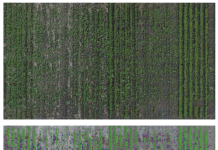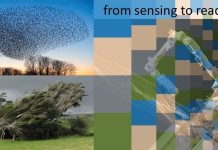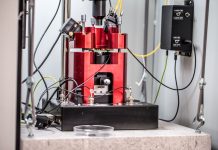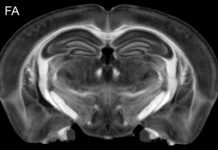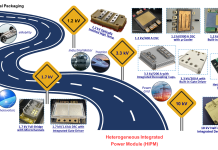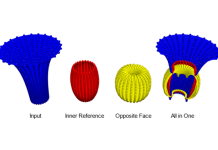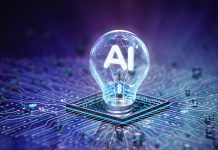Open Access Government produces compelling and informative news, publications, eBooks, and academic research articles for the public and private sector looking at health, diseases & conditions, workplace, research & innovation, digital transformation, government policy, environment, agriculture, energy, transport and more.
Home 2025
Archives
Electrochemical interfaces: Crucial enablers of sustainable energy technologies
In this article, a team of expert scientists explains why electrochemical interfaces are crucial enablers of sustainable energy technologies.
Improved herbicide stewardship with remote sensing and machine learning decision-making tools
Weeds pose the most persistent and costly threat to crop production in Canada, driving widespread herbicide use and accelerating the rise of herbicide-resistant species. This article explores how emerging AI- and trait-based decision tools can transform weed management and usher in a new era of precise, sustainable herbicide stewardship.
Cerberus: The digital lord of the flies
Professor Francisco Rovira-Más from the Universitat Politecnica de Valencia discusses the Cerberus project, focusing on sustainable crop protection through data-driven decision-making in Mediterranean agriculture.
Vellinge reinvents flood protection with nature-based innovation
Nature meets engineering in Vellinge’s innovative flood defence, setting a new standard for sustainable coastal protection, Anders Purcell, Project Manager at Vellinge Municipality explains.
Materials and structures that interpret signals and react
Alberto Corigliano, a Full Professor at the Politecnico di Milano, explores the development of sentient materials and structures through the IMMENSE project.
Atomic-Force Microscopy (AFM) data: Are these images real?
Focusing on atomic-force microscopy (AFM) data, Nancy A. Burnham examines the challenges in image processing for scientific research, highlighting how different techniques yield varied images and clearer views of key features. The choices researchers make during processing can therefore lead to differing conclusions, underscoring the importance of critical evaluation in scientific publications.
How U.S. research and innovation are reshaping the global energy future
Cecilia Van Cauwenberghe discusses how U.S. research and innovation are transforming the global energy landscape, beginning with comments on energy innovation necessity.
3D microscopic whole brain neurodegenerative MRI
This article by G. Allan Johnson, Ph.D., focuses on advanced MRI techniques for studying neurodegenerative diseases, exploring the challenges of screening therapies for conditions like Alzheimer’s and Parkinson’s, and highlighting the promising research conducted at Duke University.
Power electronic modules form the basis of grid modernization
H. Alan Mantooth, Distinguished Professor at the University of Arkansas, guides us through power electronic modules, which form the basis of grid modernization.
Organic intelligence core technology (OICT) solves the core problem of AI/ML
Many businesses are growing sceptical of AI/ML because they fail to see strong returns or solid fundamentals. Inora Organic Intelligence Core Technology (OICT) changes that – built on a strong foundation, it delivers accuracy and sustainable ROI.
EPIC-X: Excelling deep tech through place-based innovation and connected ecosystems for women-led startups
EPIC-X envisions a European effort that unites diverse stakeholders to create an inclusive and equitable deep tech ecosystem, empowering women-led startups, fostering cross-border collaboration, and dismantling systemic barriers to innovation across Europe.
Bridging big science and industry quality control for laser manufacturing processes
Discover how researchers are making the PETRA III Swedish Materials Science beamline’s X-rays accessible for tracking the evolution of material properties during laser processing.
Scaled: Substation in a cable for adaptable low-cost electrical distribution
Modern power electronics meets medium voltage cables to create a high-density inline power conversion system for the grid of tomorrow.
Smaller and warmer: Merging photonics with electronics to build a quantum simulator
Mher Ghulinyan, PhD, is a Senior Researcher at the Centre for Sensors and Devices, Fondazione Bruno Kessler, where he explores the integration of photonics and electronics to develop a quantum simulator.
Powering production: Vestas aircoil A/S on the cutting edge of digital twin technology
In an exclusive Q&A interview, Vestas Aircoil A/S, a leader in heat exchanger and charge air cooler solutions, sheds light on its transformative journey with digital twin technology.
Security layers for neuromorphic photonic accelerators
Fabio Pavanello and co-authors discuss the importance of security layers in computer systems, particularly in the context of the Horizon Europe NEUROPULS project, which focuses on innovative security solutions based on novel neuromorphic architectures and PUF-based security layers.
Frontline innovations: Introducing the Black Sea battle lab
The Black Sea Battle Lab is a new initiative launched by the Ukrainian and Norwegian armed forces amid the ongoing conflict in Ukraine. Set to begin in July 2025, it aims to create a hub for innovation, leadership development, and policy engagement in maritime operations. Head of the Department of Tactics, Ukrainian Naval Forces Institute, Pavlo Rud, explains.
What does it mean to ‘know’ something in the age of AI?
Stephanie Schneider from SUNY Old Westbury examines how Artificial Intelligence is reshaping our understanding of knowledge and challenging traditional concepts as it becomes increasingly integrated into our daily lives.
Unlocking circular economy value through trusted and decentralised data sharing
Discover how the JIDEP project evidences unlocking circular economy value through trusted and decentralised industrial data sharing.
Next-generation exercise analysis technology: Visualization of muscle activity
Professor Yoshihiro Shimomura from Chiba University explores next-generation exercise analysis technology, using electromyography (EMG) and mechanomyography (MMG). His vMMG system visualizes muscle activity with a low-frequency microphone and LED indicators, enabling real-time observation and data recording for further analysis of muscle function.


